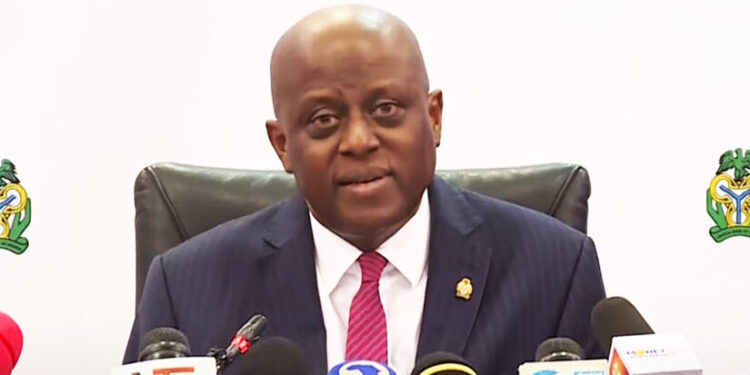The Central Bank of Nigeria (CBN) has provided clarity on the recent significant decline in the nation’s foreign exchange reserves, asserting that it was primarily aimed at partially repaying debts owed to creditors, rather than solely defending the naira, as commonly believed.
During the ongoing International Monetary Fund/World Bank Spring Meetings in Washington D.C., United States, CBN Governor Olayemi Cardoso explained the rationale behind the decline, emphasizing the bank’s desire to minimize its involvement in the market. Cardoso highlighted the importance of allowing market forces to determine prices rather than relying heavily on intervention from the bank.
Nigerians had expressed concerns over the substantial downturn in the country’s foreign exchange reserves, which plummeted by approximately $2.16 billion in 29 days, despite efforts to stabilize the naira. Data from the CBN website revealed that as of April 15, 2024, the FX reserves had fallen to $32.29 billion from $34.45 billion recorded on March 18, 2024.
The CBN had previously attributed the rise in reserves to increased remittance payments from Nigerians abroad, heightened interest from foreign investors in local assets, and reforms in the foreign exchange market. However, Cardoso clarified that the recent decline was unrelated to defending the naira and stated the bank’s intention to refrain from intervening in the exchange unless unusual circumstances arose.
Cardoso assured that an uptick in reserves would be recorded soon as the country was set to receive an additional $600 million into the reserves accounts. He emphasized the importance of maintaining credibility by fulfilling debt obligations while acknowledging that fluctuations in reserves are common due to various financial transactions.
The governor reiterated the CBN’s commitment to promoting a vibrant currency market and ensuring sufficient liquidity. He noted that while interventions may occur in certain segments, such as the Bureau de Change, the overarching goal is to facilitate access to funds for essential needs such as school fees and healthcare.
In conclusion, Cardoso emphasized that the recent decline in reserves was part of normal financial operations and reaffirmed the CBN’s commitment to maintaining stability in the foreign exchange market while prioritizing debt repayment and market-driven price discovery mechanisms.











